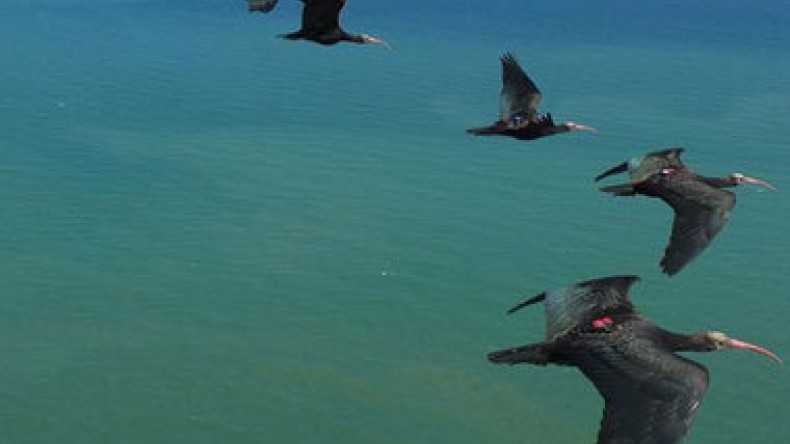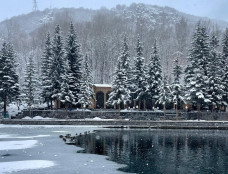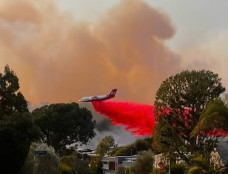
Flock co-operation: Birds take it in turns to lead
Scientists have worked out how flocking birds solve the "social dilemma" of who leads the flock, the BBC reported.
Researchers from the UK, Germany and Austria studied the northern bald ibis, tracking precisely how this species - like many large birds - maintains a "V" formation when migrating.
They found that birds took it in turns to take the very energy-depleting lead.
This allowed every bird to take advantage of extra lift produced by by the wings of the bird in front.
The findings are published in the Proceedings of the National Academy of Sciences.
Lead researcher Bernhard Voelkl from the University of Oxford's department of zoology told BBC News that he wanted to know how the birds worked together to deal with the "very high cost" of migration.
"These birds go from Austria to Italy - a journey of 1,500km (930 miles)," he explained. "Mortality is really high - 30% of juveniles don't survive the first migration."
The researchers were able to track each bird in a flock, thanks to a unique conservation project by the Waldrappteam in Austria, which has raised northern bald ibises, and trained them to migrate behind a microlight aircraft.
The aim of this unusual project is to bring the northern bald ibis back to Europe; the birds were wiped out by hunting, so the team is retraining the birds to navigate a migration route that has now been lost.
Data loggers containing GPS-based tracking devices, that the team fitted to each bird, meant the scientists could track their exact positions.
Careful analysis of how and where the birds shifted position as they flew, showed that birds were working in pairs, repeatedly swapping around between follower and leader.
"What we saw was that, for each bird, there's a very clear correlation between the time it spent in front, and the amount of time it followed another bird," said Dr Voelkl.
"So the time bird A is in front of bird B correlates almost exactly with the amount of time it's the other way around; they're taking it in turns."
Newsfeed
Videos






























